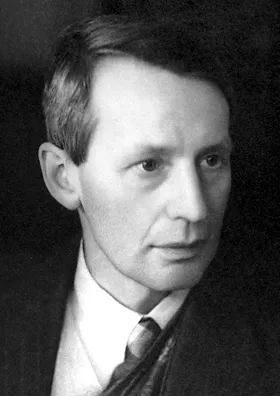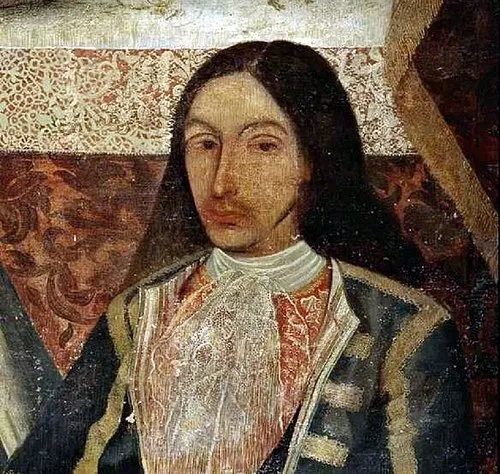
Full Name: George Paget Thomson
Birth Year: 1892
Nationality: English
Profession: Physicist and Academic
Nobel Prize: Laureate
Death Year: 1975
1892 – George Paget Thomson, English physicist and academic, Nobel Prize laureate (d. 1975)
George Paget Thomson: A Legacy of Discovery
Born into a family steeped in scientific inquiry, George Paget Thomson entered the world in 1892, a year that marked the dawn of profound changes in both science and society. His father, J.J. Thomson, had already carved a path as a physicist, earning fame for his discovery of the electron a breakthrough that would cast a long shadow over George’s future endeavors.
As he grew up amidst discussions about particles and waves perhaps even listening to conversations echoing with the excitement of new theories young George found himself drawn to the world of physics. However, it wasn’t merely familial legacy that propelled him forward; he possessed an innate curiosity about how things worked on both macroscopic and microscopic levels.
Thomson's academic journey began at Trinity College, Cambridge. Imagine him sitting among peers who would become titans of science themselves! The atmosphere was electric with ideas swirling around like leaves caught in a gust of wind relativity theories mingled with quantum mechanics. Yet despite this intoxicating environment filled with intellectual vigor, George faced challenges inherent to the realm he chose; theories were rapidly evolving and needed rigorous validation through experimentation.
During World War I, like many young men at the time, he was called into service. Ironically, rather than engaging on traditional battlefields armed with weapons or strategy manuals, he found himself diving deep into matters related to technology that could impact warfare from sound detection devices to various communication technologies. This experience not only honed his scientific skills but also broadened his perspective on how innovation could serve humanity during tumultuous times.
The Breakthrough: Discovering Wave-Particle Duality
The most pivotal moment in Thomson's career came shortly after he completed his education he ventured into exploring electrons' dual nature as both particles and waves. It was during this period when his experiments would lay foundational stones for quantum mechanics as we know it today!
Pioneering work involved conducting experiments using electron diffraction a technique that revealed how electrons could exhibit wave-like properties under certain conditions. Perhaps one can imagine him standing before a complex apparatus watching patterns emerge before him; each spot illuminated by emerging understanding! The experiment confirmed de Broglie's hypothesis regarding wave-particle duality a revelation that turned heads across laboratories worldwide!
A Nobel Prize Winner
This monumental discovery did not go unnoticed; it ultimately led to Thomson receiving the Nobel Prize in Physics in 1937! As historians recount this phase of his life, one cannot help but feel awe for how dramatically this recognition shifted perceptions about what constituted fundamental aspects of physical reality.
The Legacy Continues
Despite receiving accolades and achieving great heights within academia including professorships at various esteemed institutions Thomson remained humble about his contributions to science. He often emphasized collaboration over individual brilliance as being essential for progress! Perhaps those sentiments stemmed from witnessing firsthand how collective knowledge emerged during chaotic wartime periods where many minds came together toward common goals.
An Educator's Heartbeat
Toward the latter part of his career and perhaps reflective on all he'd learned throughout decades spent unraveling mysteries you might picture him passionately guiding young students through complex topics while encouraging them not only to question established norms but also pursue curiosity fearlessly!
This spirit echoed within lecture halls where students listened intently as their mentor shared personal stories interlaced with fascinating discoveries from particle physics all while challenging them intellectually… “Who knows?” they may have thought upon witnessing such enthusiasm radiate from their professor!
A Personal Reflection
It is worth noting that some critics argue there’s an inherent irony present here: while embarking upon revolutionary journeys through theoretical realms beyond comprehension the same principles remain applicable even today across multiple fields such as technology or medicine! For instance... think about modern advancements arising due largely thanks innovations rooted deeply within concepts pioneered by individuals like Thomson!
The Influence TodayYou see echoes of Thomson’s discoveries permeating everything around us now from communication technologies relying heavily upon principles rooted deeply within quantum mechanics to medical imaging techniques allowing physicians glimpse inside human anatomy via electrons zipping along pathways once thought purely theoretical!
A Lasting ImpactCertainly one cannot overlook how essential these developments have proven crucial during times when accurate diagnostics mattered most! Even today the digital age has birthed another kind revolution fueled by insights originating back then...<






